A Conversation with Bruce Duffie
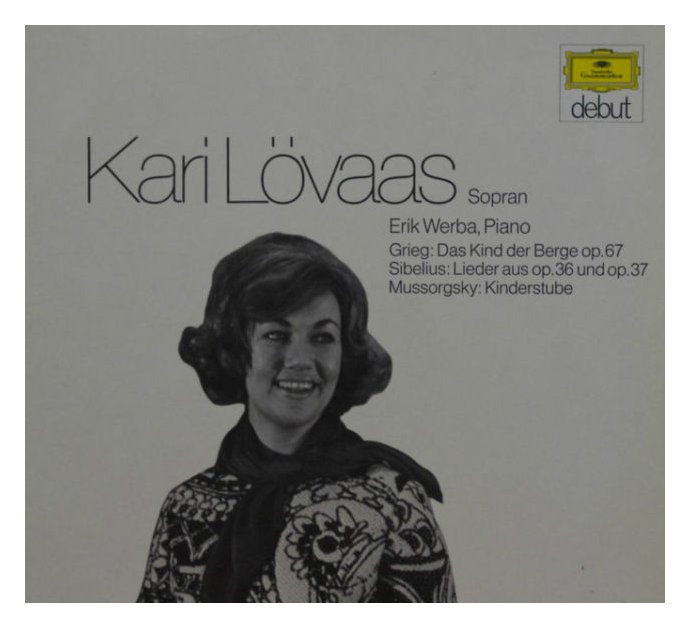

| The
Norwegian soprano, Kari Lövaas, born May 13, 1939, began at 16 piano
and singing studies at the Conservatory of Oslo. She was promoted in her career
by soprano Kirsten Flagstad, and made her debut in 1959 at the Opera of Oslo
as Nuri in Tiefland by Eugen d'Albert.
Following that she was very successful there as Pamina, and then received
a scholarship from the Norwegian state for two years to study at the Wiener
Musikakademie. In 1964 Kari Lövaas was engaged at the Opernhaus of Dortmund; in 1965-1966 she sang at the Stadttheater of Mainz. She had an international concert and guest performance career. In 1969 she sang at the Salzburg Festival Marianne Leitmetzerin in Der Rosenkavalier; in 1970 Barbarina in Le nozze di Figaro; on August 20, 1973 in the world premiere of Carl Orff's De temporum fine comoedia. In 1973, she sang at the Münchner Festwochen the soprano solo in Petite Messe solennelle by Rossini. In 1973, she embarked on an extensive Australian tour. She has performed in concerts in New York and Washington and at the Lucerne Festival. In 1976 she toured Japan and performed in the same year at the Staatsoper Berlin. In 1973 she sang her first Wagner role at the Opernhaus of Zürich Sieglinde in Die Walküre. On stage, she had her greatest successes in the lyrical vocal category; in the concert hall in a variety of parts, primarily as a Lieder interpreter. After her marriage to Manfred Gerber, she also appeared under the name Lövaas-Gerber. Recordings: DGG (De temporum fine comoedia, Lieder), Berlin Classics (War Requiem of Benjamin Britten), HMV-Electrola (Orpheus in der Unterwelt by Offenbach, Boccaccio by Suppe, Die Opernprobe by Lortzing, Der Rose Pilgerfahrt by R. Schumann), Phillips (La fedeltà premiata and La vera costanza by Haydn, and Betulia liberata by Mozart), Obligat (C minor Mass by Mozart), Orfeo (Peer Gynt by W.Egk, Die Feen by Richard Wagner). |
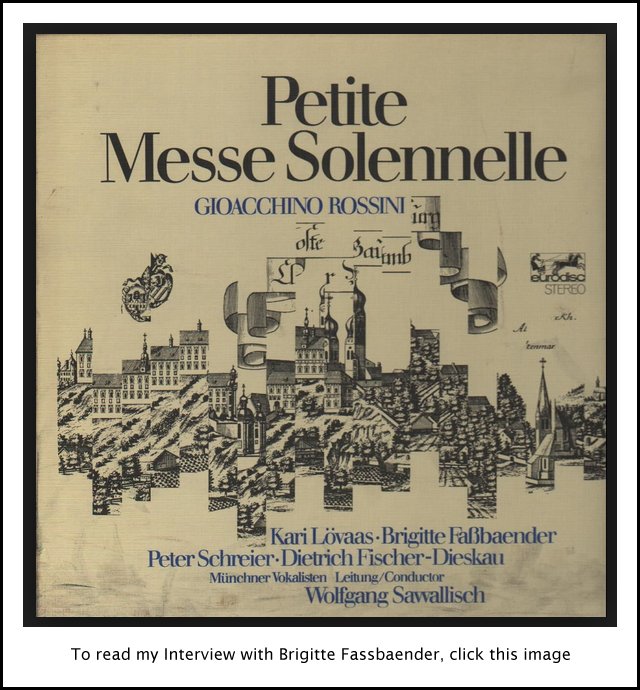 KL: Yes I think so, because of the time changing,
also. I have to struggle with jet lag. I wake up at three o’clock
at night and sleep a little bit again, and especially the air conditioning
is something very, very bad because it dries out the throat and the nose and
everything.
KL: Yes I think so, because of the time changing,
also. I have to struggle with jet lag. I wake up at three o’clock
at night and sleep a little bit again, and especially the air conditioning
is something very, very bad because it dries out the throat and the nose and
everything.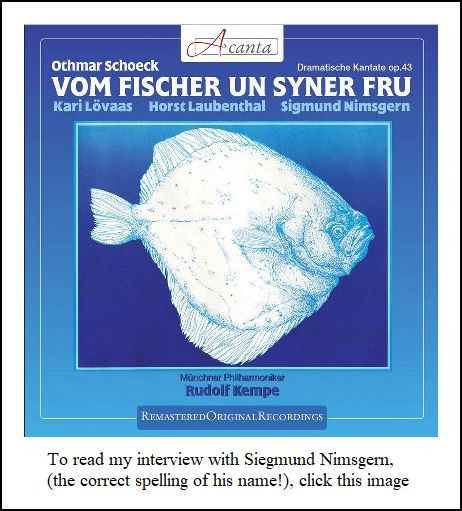 BD: When
you were singing the second part in Bohème,
did you find yourself slipping into the wrong line in the ensembles?
BD: When
you were singing the second part in Bohème,
did you find yourself slipping into the wrong line in the ensembles?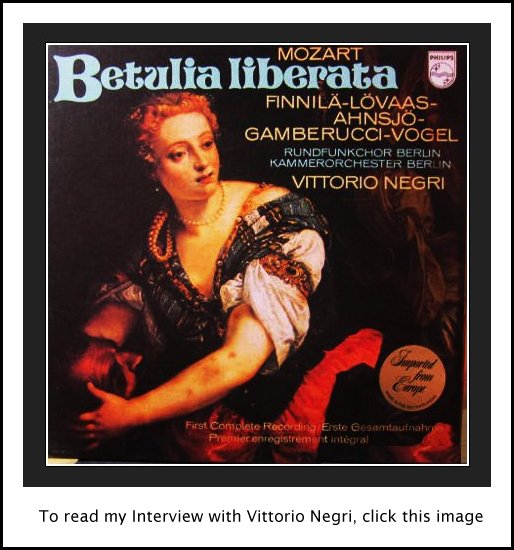 BD:
When you are singing opera — Mozart or anyone else —
how much is the music and how much is the drama?
BD:
When you are singing opera — Mozart or anyone else —
how much is the music and how much is the drama?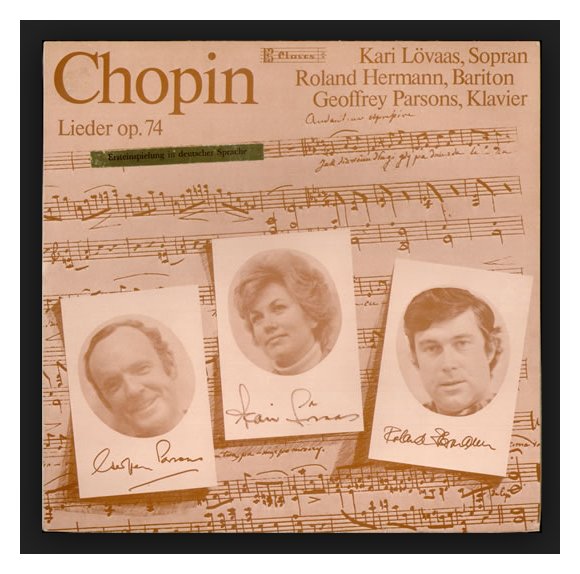 KL:
Yea, I think that. When I started in my young years as a singer, the
people were coming to the theater and were sitting there listening and looking.
Now you have to do so much other things! Directors seem to feel it shouldn’t
be real, it shouldn’t be natural, it shouldn’t be something very special.
If you sing a high C, you should stand on your head, or I don’t know what.
It’s a little bit hard to do things like that! Also, the picture on
the stage doesn’t take place in that century given by the composer.
You can’t play Wagner like Wagner did because we are developing, but I think
it’s going a little bit too much the other way. So it’s hard!
For the young singers today, playing opera is very hard because they have
the same feeling that we had, but they have to do other things to make the
people understand. The people want some spectacle.
KL:
Yea, I think that. When I started in my young years as a singer, the
people were coming to the theater and were sitting there listening and looking.
Now you have to do so much other things! Directors seem to feel it shouldn’t
be real, it shouldn’t be natural, it shouldn’t be something very special.
If you sing a high C, you should stand on your head, or I don’t know what.
It’s a little bit hard to do things like that! Also, the picture on
the stage doesn’t take place in that century given by the composer.
You can’t play Wagner like Wagner did because we are developing, but I think
it’s going a little bit too much the other way. So it’s hard!
For the young singers today, playing opera is very hard because they have
the same feeling that we had, but they have to do other things to make the
people understand. The people want some spectacle.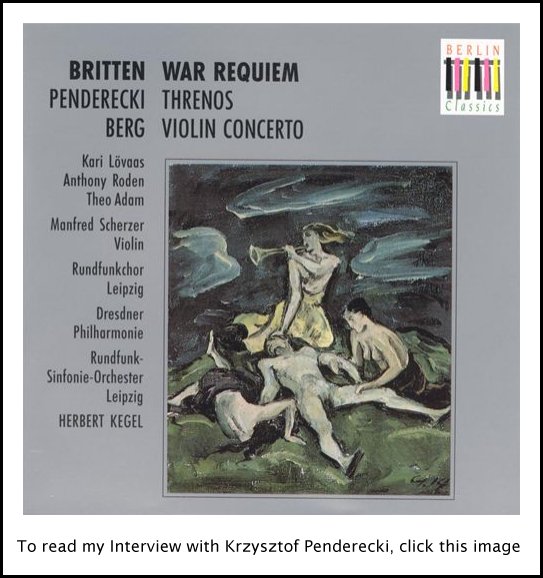 BD: Have you done some teaching of singing?
BD: Have you done some teaching of singing?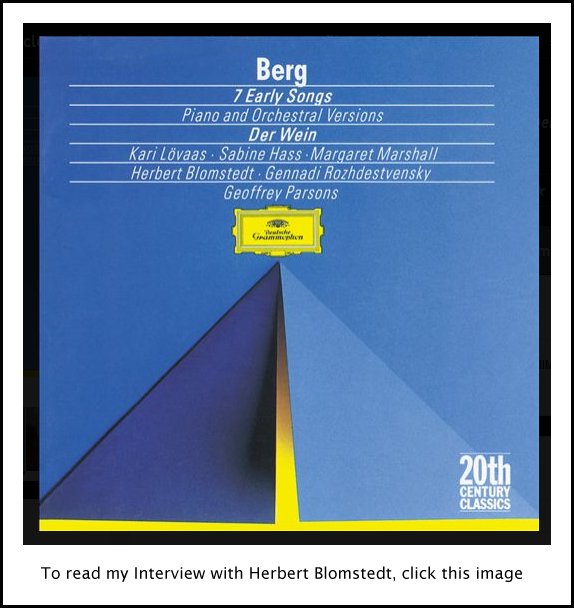 BD: Did Schoenberg treat you like an instrument,
or did he treat you like a voice?
BD: Did Schoenberg treat you like an instrument,
or did he treat you like a voice?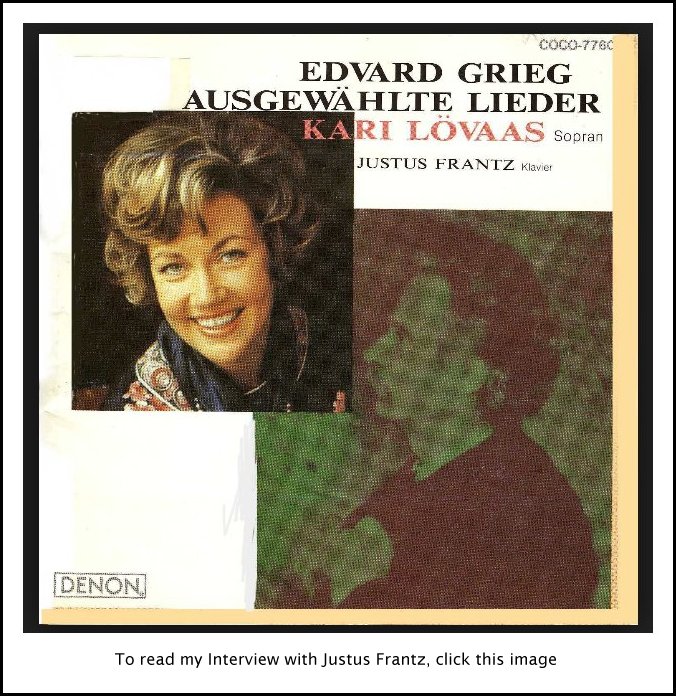 KL: Oh yes. On a recital I always have
a Grieg or some Scandinavian things in Norwegian or in Swedish.
KL: Oh yes. On a recital I always have
a Grieg or some Scandinavian things in Norwegian or in Swedish.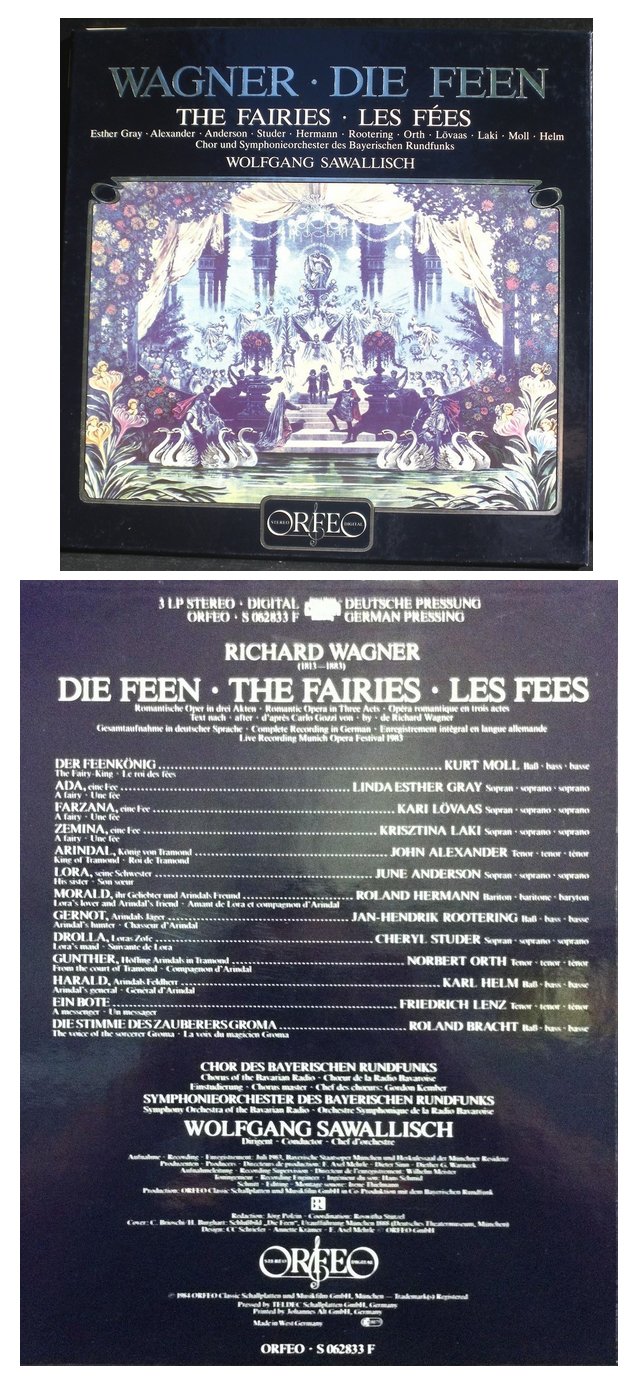
To read my Interview with Kurt Moll, click HERE. To read my Interview with June Anderson, click HERE. To read my Interview with Wolfgang Sawallisch, click HERE. 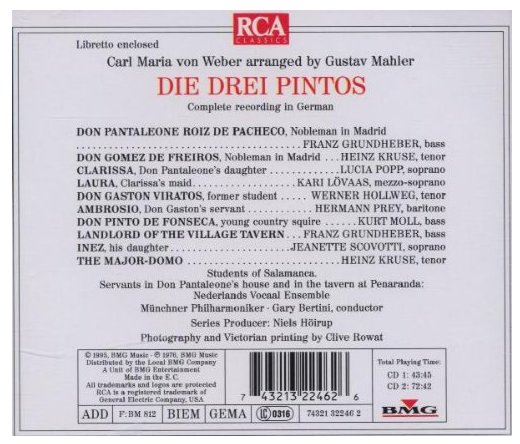
To read my Interview with Hermann Prey, click HERE. To read my Interview with Gary Bertini, click HERE. 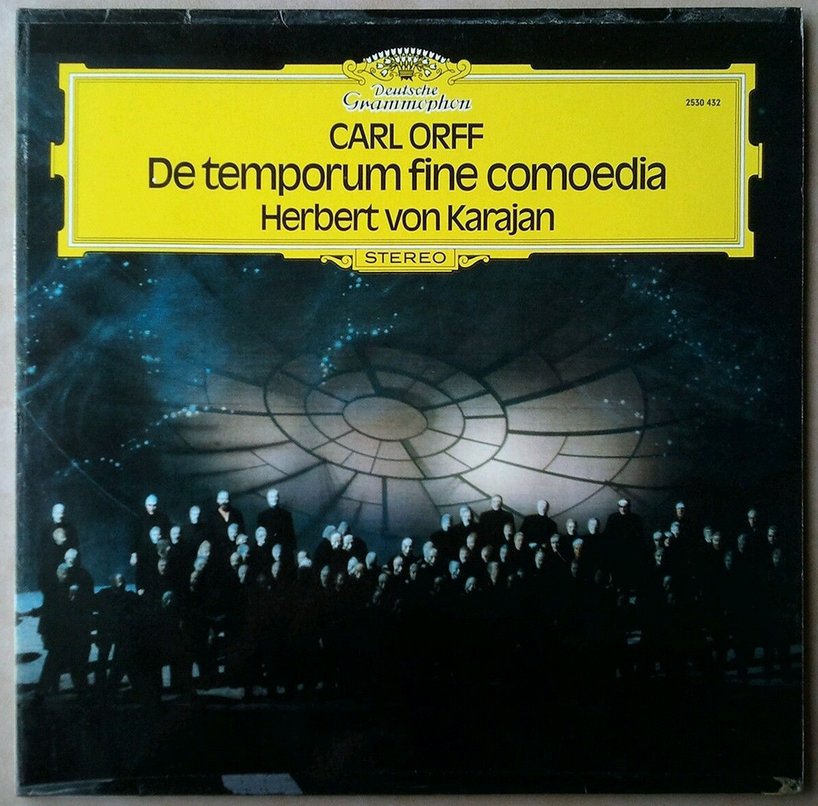
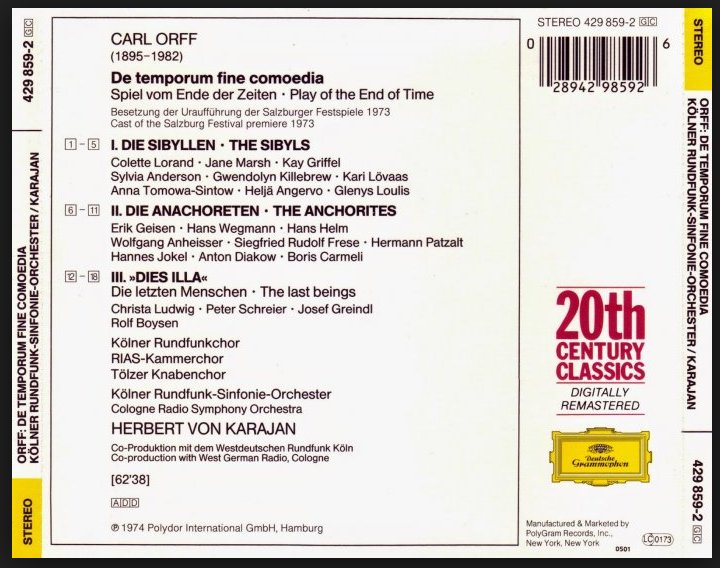
To read my Interview with Anna Tomowa-Sintow, click HERE. To read my Interview with Peter Schreier, click HERE. 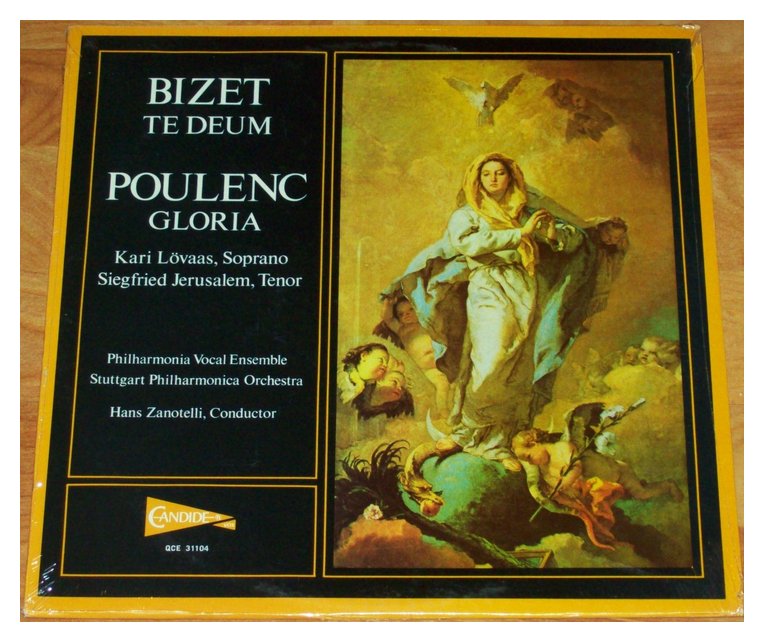
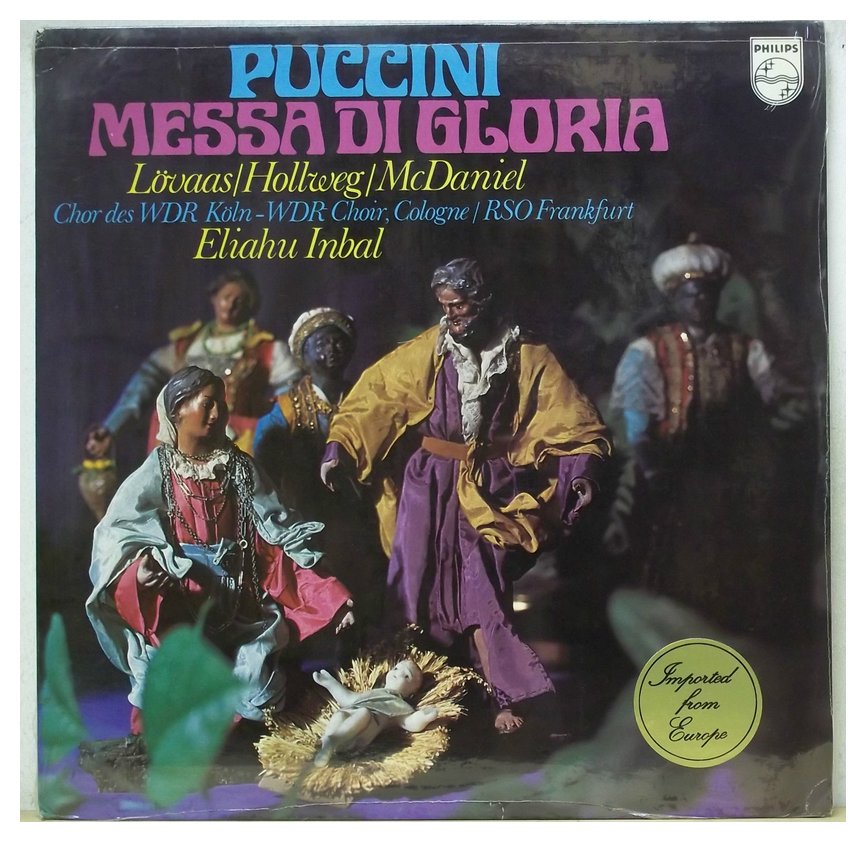
|
This interview was recorded in Chicago on February 22, 1996.
Segments were used (with recordings) on WNIB in 2001. The transcription
was made and posted on this website in 2013.
To see a full list (with links) of interviews which have been transcribed and posted on this website, click here.
Award - winning broadcaster Bruce Duffie was with WNIB, Classical 97 in Chicago from 1975 until its final moment as a classical station in February of 2001. His interviews have also appeared in various magazines and journals since 1980, and he now continues his broadcast series on WNUR-FM, as well as on Contemporary Classical Internet Radio.
You are invited to visit his website for more information about his work, including selected transcripts of other interviews, plus a full list of his guests. He would also like to call your attention to the photos and information about his grandfather, who was a pioneer in the automotive field more than a century ago. You may also send him E-Mail with comments, questions and suggestions.